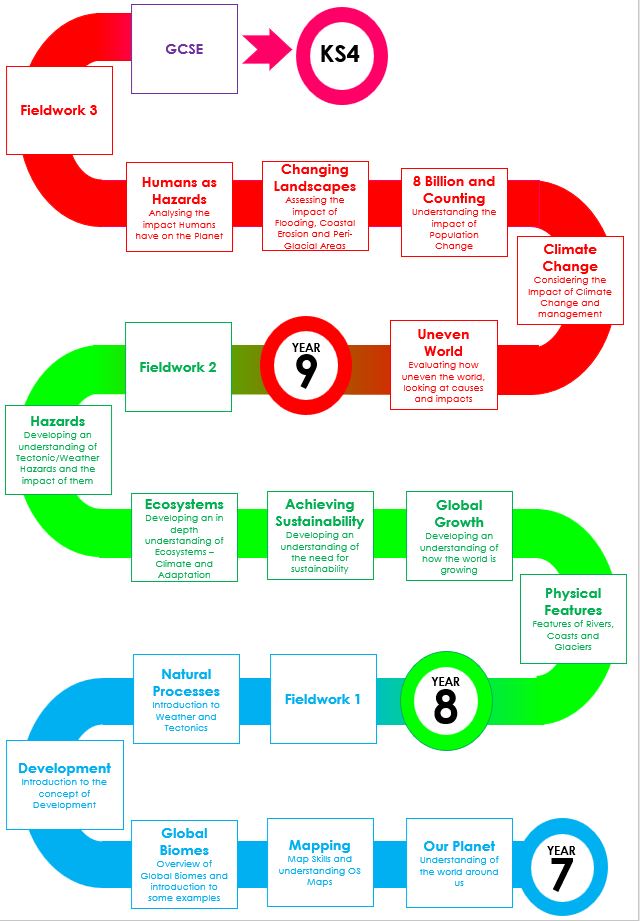Geography
Introduction to the Team:
Mr. A. Dixon – Subject Leader
Mr. J. Round – Teacher of Humanities
Mrs. E. Garner – Teacher of Humanities
Mr. A. Kettle – Assistant Principal and Teacher of Humanities
Subject Aims/Intent:
The Geography Curriculum at OSCA is based around our five guiding principles:
- Being analytical
- Skilled
- Globally Minded
- Future Thinking
- Fostering Curiosity
The curriculum develops a sense of place and helps students make sense of their surroundings and to gain a better appreciation and understanding of the variety of physical and human conditions on the Earth’s surface. The subject extends students’ interest and knowledge beyond their immediate experiences
Analytical
We encourage students to question the information presented to them by identifying trends and anomalies and using this to present their arguments. Working as a Geographer requires a set of skills that are supported by literacy and numeracy and we aim to support the pupil’s journey through their time at OSCA empowering them to access resources and support to develop their skills and understanding to independently question the world around them.
Skilled
Geography develops major skill areas: Map and fieldwork skills; cross-curricular skills such as ICT, Literacy and Numeracy; as well as an increasing awareness of the world around us and the idea of sustainability. We recognise that literacy and communication cover a variety of skills, including taking and making notes, summarising information, presenting ideas, title writing, persuasive writing and arguments. It also covers the ‘spoken language’ component of the national curriculum. Numeracy is also promoted through data analysis and graph drawing through to the use of digital mapping. We use the academy’s educational ethos to; regularly review previous learning, introduce new skills in small steps (with modelled examples) and Re-teaching of material when necessary.
Globally Minded
We want students to become global citizens and show a keen awareness of the geography around them. Geography is everywhere and students at OSCA develop a keen awareness and appreciation of the geography around them. We build the Cultural Capital of our students by helping them to understand the contemporary world around them through regular evaluation of world events and relate this to their Geography Curriculum. Students learn about how political decisions can cause change the local environment and the world around them. They learn about the powerful economic forces around them that are bringing about changes to the way that will affect their future careers. Socially, the students learn about how countries are at different stages of development and how the lives of people living there are very different. Geography also helps to explain the many environmental issues that are changing the world in which these students live and how to make sense of these effects.
Future thinking
We want the students to have thoroughly enjoyed learning about geography, therefore encouraging them to undertake new life experiences now and in the future. Geography develops an understanding of their place in the world as well as an increasing awareness of their impact on their surroundings. This is underpinned by the ideas of sustainability and the impacts of this in the future.
Foster curiosity
We encourage students to ask a large number of questions and teachers regularly check for understanding.
